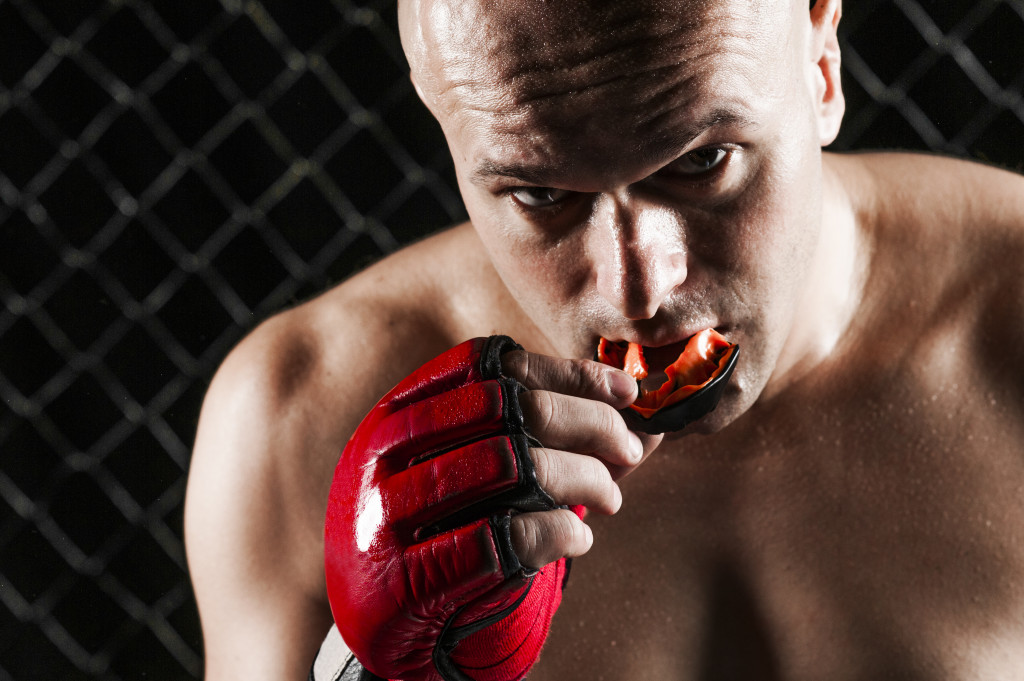It can be satisfying to know that you can play well in a particular sport. Besides the physical benefits, you can also receive significant boosts in mental strength. Your socialization skills will also improve whether you play a team-based sport or engage with a lively community within a solo activity. You can create a long list of benefits that will make you want to continue performing or improving upon a sport you love. However, it doesn’t mean you won’t encounter anything wrong when you participate in physical activities.
There will be threats, and sports-related injuries will be at the top of your list. Whether it is from improper technique or a freak accident, every player needs to be wary of injuries. The time for recovery and treatment could be excruciating and long, making it necessary to protect yourself at all costs. If you feel scared of suffering from an injury or experienced one, here are a few protective gears to add to your sports outfit.
Eye Goggles
Let’s start with the squishiest one of all. The eye is essential when playing a sport because of sight. Most sports require vision, which is usually the basis for most strategies and playmaking-related actions within a game. Unfortunately, there might be a lot of eye-poking and scratching during a contact-based sport, nearly all of them unintentional. Unfortunately, those moments could lead to scratched corneas, broken eye sockets, and other eye-related injuries. Recovery time will be long, and your eye might not take another incident of that extent. This situation is where eye goggles are essential for the rest of your playing days. The strategy eliminates any chances of your eyes getting damaged again. It might be unfamiliar to you, but eye goggles will be necessary for your safety.
Mouthguard

Playing contact-based sports can be brutal to your body. You will take a lot of hits, most resulting in bruises and bumps. Fortunately, your body is a solid system that can take a few punches. Getting bloodied will be rare, but there is one area where one hit is all it takes for blood to pour. The mouth is a tender area that disrupts your performance when damaged. Busted lips, damaged gums, and bitten tongues might end up becoming a nuisance. A chipped tooth might require you to visit a dental clinic for an emergency as soon as possible. Fortunately, you can prevent any hit from becoming more dangerous by using a mouthguard. The equipment softens the blow, lessening the impact that could save your mouth from getting bloodied.
Helmet or Headgear
The head is a fragile thing. One bump could lead to migraines and concussions. Unfortunately, head injuries are prevalent in contact-based sports. Activities like soccer, football, basketball, and mixed martial arts will always expose your head to potential injuries.
For heavy-contact sports, headgear is part of the official outfit. Football will force players to collide constantly, and not wearing a helmet could lead to concussions or other head injuries. Repetitive head trauma might cause severe and irreversible damage to the brain. Fortunately, most heavy contact sports made considerable progress to protective gear that concussions happen rarely. If a player does suffer from head trauma, professional leagues have protocols to ensure health and safety. For the average person, consulting with a doctor will be necessary before you resume playing.
There are also a few physical activities where headgear becomes a necessity after a significant head injury. Heading the ball to the goal is part of soccer. Unfortunately, that will never change, even if you suffer from a head injury. This situation is where headgear becomes essential. Once you recover, the headgear should lessen the impact and prevent aggravating an existing injury. The protective gear might be present every time you perform the sport, but it shouldn’t stop you from going all out.
However, a few contact-based sports have plenty of potential head injury risks, but headgear provide athletes with an unfair advantage. Boxing, mixed martial arts, and other fighting sports include blows to the head. Taking those hits comes with the job, which means you must prepare for it. Fortunately, activities like those provide people with enough time between matches to recover from any head trauma. People must always be in peak physical condition when participating in fighting sports, eliminating the need for headgear.
Sports injuries on your head can have long-lasting effects that make your participation dangerous. Fortunately, these protective gears can help reduce the impact or damage that any head trauma can provide for people. However, creating a safety net should be part of your strategy. Getting the contact info of medical professionals and finding the nearest hospital every time you participate in sports allows you to practice health and safety every time you play the activity you love.

